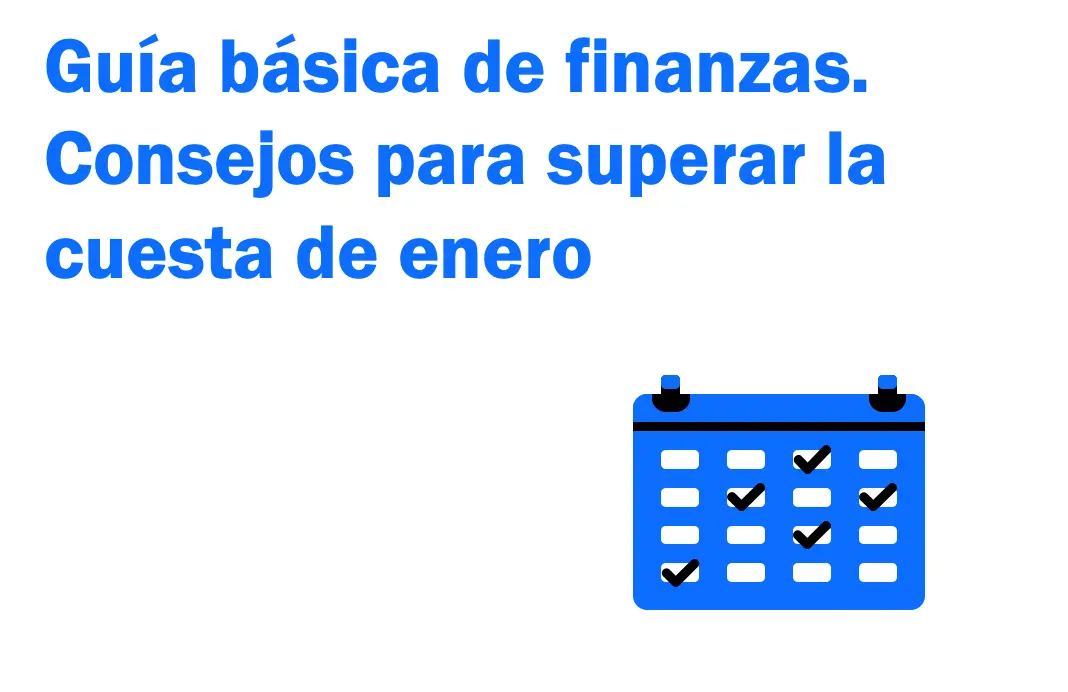The Christmas holidays are one of the most awaited moments for everyone throughout the year, but once they are over we find ourselves with the paradigm of setting ourselves new goals and also with the obligation to face the expenses we had in January, which builds onto the obligations of each month (mortgage, rent, supplies and others). In concrete figures, according to the Organisation of Consumers and Users (Organización de Consumidores y Usuarios, or OCU), the average person’s Christmas spending in 2021 will be 641 EUR, 20% more than in 2020. For this reason, at Banco Sabadell we have written a new article in our Basic Finance Guide with a series of tips that will help to ensure that our economy is not so badly affected, starting on January 1.

Please note:
- Make a budget. We must keep the actual amount of money we are going to have available in mind, and managing it correctly can give us the key to avoiding superfluous and impulsive expenses. Having a clear idea of how much money we can use will help us control ourselves more.
- Write down your finances. When you buy or pay for something, write it down. This makes us more aware of everything we spend and lets us see what money we can save and what expenses are absolutely necessary.
- The 48-hour rule. In order to avoid impulsive purchases, some experts have designed this rule. It consists of waiting 48 hours from the moment you feel the urge to buy something until the moment you actually do it. If after two days you still think you have to buy it, go ahead.
- Draw up a shopping list. As we previously mentioned, there are different expenses that are completely necessary, such as buying the groceries. However, something as simple as making a shopping list of the must-haves before going to the supermarket helps us prevent spending on little whims that make the final amount increase.
- Compare prices. Another useful piece of advice when shopping is to compare prices for a product in different establishments. It may not be a huge difference, but all of the small savings will build towards a less affected savings account.
- Take advantage of sales. January is a sales month too. Do not indulge in anything that is not imperative. But it may be the perfect time to get the jersey or trousers you needed.
- Stay home. We are used to going out for a bite, a drink, the movies or shopping. This is the perfect month for making plans to stay in, thus avoiding small expenses that add up little by little and can make a difference by the end of the month.